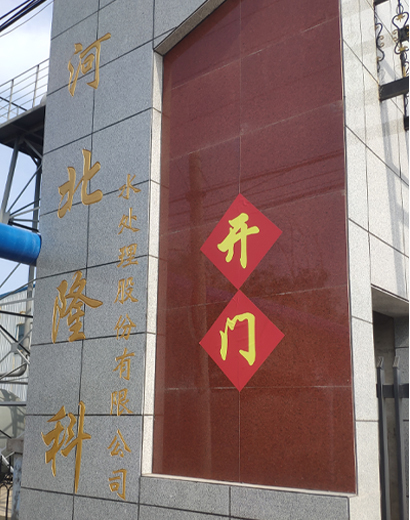Understanding the Role of Scale and Corrosion Inhibitor Chemicals in Industrial Water Treatment Solutions
Scale and Corrosion Inhibitor Chemicals Importance and Applications
In various industries, particularly those that involve water use, maintaining the integrity of equipment and pipelines is crucial for operational efficiency and longevity. Two of the most common issues that arise in these scenarios are scale formation and corrosion. Scale refers to the accumulation of mineral deposits on surfaces, while corrosion is the gradual destruction of materials, usually metals, through chemical reactions. Both phenomena can lead to significant maintenance costs, decreased efficiency, and even system failures. This is where scale and corrosion inhibitor chemicals play a vital role.
Understanding Scale Formation and Corrosion
Scale typically forms in systems where water is heated or evaporated, leading to the precipitation of dissolved minerals such as calcium carbonate, silica, and magnesium salts. These deposits can accumulate on heat exchangers, boilers, and pipes, reducing heat transfer efficiency and leading to increased energy consumption. For instance, in a boiler, even a thin layer of scale can reduce heat efficiency by as much as 20%, resulting in higher operational costs.
Corrosion, on the other hand, occurs due to the interaction of metal surfaces with their environment, often exacerbated by factors such as moisture, chemicals, and temperature. The consequences of corrosion can be severe, leading to leaks, equipment failure, and safety hazards. It is estimated that corrosion costs industries in the United States alone over $280 billion annually, highlighting the urgent need for effective preventative measures.
Role of Inhibitor Chemicals
To combat scale and corrosion, industries utilize a variety of chemical inhibitors
. These chemicals work by either preventing scale formation or mitigating the effects of corrosion.scale and corrosion inhibitor chemicals

For scale inhibition, chemicals such as polyphosphates, phosphonates, and sulfonates are commonly employed. These compounds interfere with the crystallization process of minerals, thereby preventing them from bonding to surfaces. In many cases, they not only inhibit scale growth but can also disperse existing scale, allowing for easier removal and maintenance.
Corrosion inhibitors, on the other hand, act through different mechanisms. They can form a protective film on metal surfaces, reduce the electrochemical reactions that lead to corrosion, or even neutralize corrosive substances. Common types of corrosion inhibitors include organic amines, imidazolines, and nitrites. The choice of inhibitor often depends on the specific environment and materials used in the system.
Applications Across Industries
The application of scale and corrosion inhibitors spans various sectors, including power generation, oil and gas, water treatment, and petrochemicals. In power plants, for example, these chemicals are essential in maintaining boiler efficiency and prolonging equipment life. In the oil and gas industry, inhibitors play a key role in ensuring the integrity of pipelines, reducing downtime and maintenance costs associated with corrosion damage.
Water treatment facilities also heavily rely on these chemicals to protect cooling towers and reclaim water systems. Additionally, the mining industry employs scale inhibitors to manage mineral deposit issues that can arise during extraction processes.
Conclusion
In conclusion, scale and corrosion are significant challenges in many industrial processes, but with the application of effective inhibitor chemicals, companies can significantly reduce the risks and costs associated with these issues. By choosing the right inhibitors, industries can enhance operational efficiency, prolong the lifespan of their equipment, and ultimately ensure safety and reliability in their operations. As technology advances, ongoing research into more effective and environmentally friendly inhibitors will continue to benefit industries worldwide, helping them to tackle the persistent challenges posed by scale and corrosion.
-
Water Treatment with Flocculant Water TreatmentNewsJun.12,2025
-
Polymaleic AnhydrideNewsJun.12,2025
-
Polyaspartic AcidNewsJun.12,2025
-
Enhance Industrial Processes with IsothiazolinonesNewsJun.12,2025
-
Enhance Industrial Processes with PBTCA SolutionsNewsJun.12,2025
-
Dodecyldimethylbenzylammonium Chloride SolutionsNewsJun.12,2025





